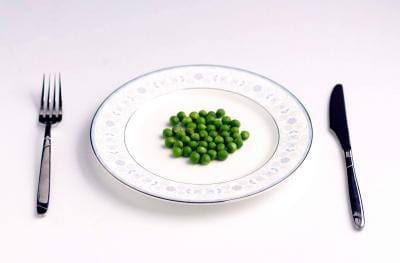Oral HCG weigh- loss products have invaded the consumer market as a more convenient alternative to receiving HCG injections. HCG, which stands for human chorionic gonadotrophin, is a hormone derived from the urine of pregnant women. The use of HCG as a weight loss aid — which became the rage in the 1950s — has long since been discredited, says Dietscam.org, a service of the National Council Against Health Fraud.
HCG History
Before oral HCG weight-loss drops were available to consumers, HCG injections were used by doctors at weight loss clinics. Dietscam.org traces the history of HCG use back to British physician Albert T. Simeons, who asserted that HCG caused people to lose fat in specific areas of the body — the waist, hips and thighs. He also claimed that taking HCG injections made it possible for dieters to remain full while eating a “semi-starvation” diet. Dietscam.org goes on to note that in its heyday, HCG injections were a mainstay of weight loss clinics, as patients had to come in for weekly treatments, assuring the proprietors a steady income.
How It Works
HCG is not approved by the U.S. Food and Drug Administration as a weight loss aid, but as a treatment for infertility. Accompanying use of oral HCG drops and key to making the weight loss effective is the stringent 500 calorie diet, which must be adhered to strictly to see results. HCG has been studied for years as a diet aid; however, no well-designed clinical studies have proven it, notes Jennifer Nelson, Mayo Clinic nutritionist. If you stop dieting, you’ll regain all the weight you lost — regardless if you continue to take oral HCG.
What Regulatory Agencies Say
Simeons went on to open a chain of weight loss clinics in the United States that used HCG treatments; however, by the mid-1970s, the Federal Trade Commission stepped in and ordered him to cease making the claim that HCG weight-loss methods were safe, effective or that they were FDA-approved. Furthermore, the FDA requires HCG to come with the following warning on the label: “HCG has not been demonstrated to be effective … in the treatment of obesity. There is no substantial evidence that it increases weight loss beyond that resulting from caloric restriction, that it causes a more attractive or ‘normal’ distribution of fat, or that it decreases the hunger … associated with calorie-restricted diets.”
Avoiding Weight Loss Scams
With ready access to oral HCG weight-loss drops and other supplements that purport to help you shed pounds, iyou might have some trouble separating fact from fiction. The FTC notes that you should heed some specific warning signs. Avoid any product or treatment that claims you’ll lose 1 pound or more each day — 1 to 2 pounds of weight loss each week gives you more permanent results, and it doesn’t compromise your health. Products that claim to work for everyone are also a no-go, as well as those that don’t promote eating a healthy, reduced-calorie diet and getting regular physical activity. Dietscam.org describes HCG as a “worthless” diet aid.
Weight Loss Basics
Doctors may recommend a very low-calorie diet, or VLCD, to patients who suffer from extreme obesity, or whose weight gain has compromised their health. However, eating a diet of 800 calories a day or less can cause fatigue, diarrhea, constipation and gallstones, cautions the Weight-control Information Network. VLCDs, such as those promoted when using oral HCG, should always be performed under the supervision of a doctor. Simply cutting 500 calories from your diet each day yields a pound of weight loss every week, says the FTC. Getting regular exercise in addition to reducing your calorie intake yields even better results.





